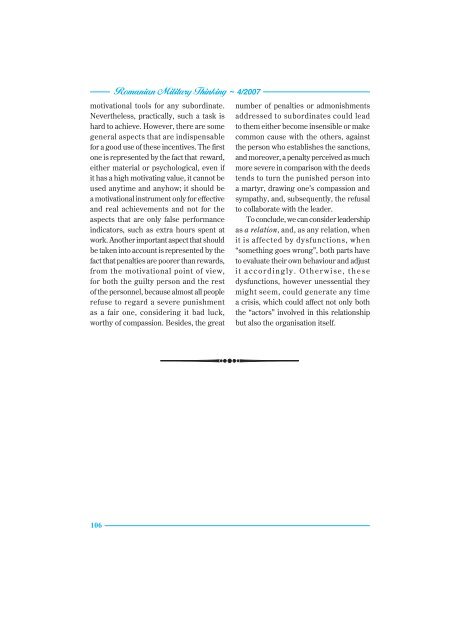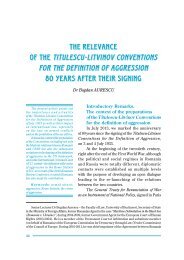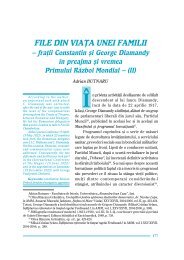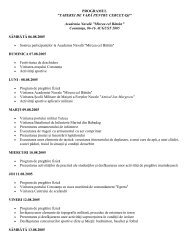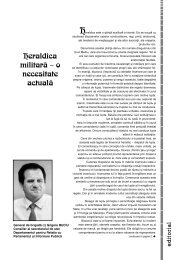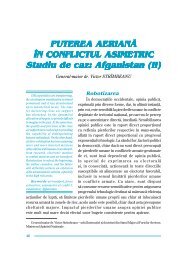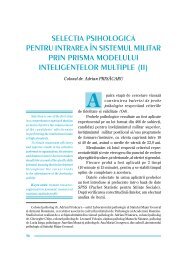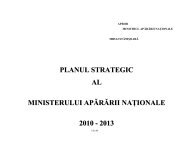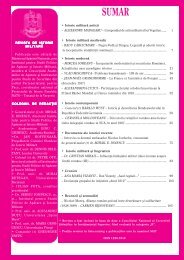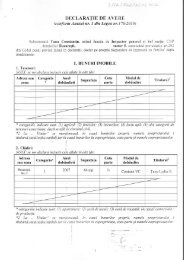Romanian Military Thinking
Romanian Military Thinking
Romanian Military Thinking
You also want an ePaper? Increase the reach of your titles
YUMPU automatically turns print PDFs into web optimized ePapers that Google loves.
106<br />
<strong>Romanian</strong> <strong>Military</strong> <strong>Thinking</strong> ~ 4/2007<br />
motivational tools for any subordinate.<br />
Nevertheless, practically, such a task is<br />
hard to achieve. However, there are some<br />
general aspects that are indispensable<br />
for a good use of these incentives. The first<br />
one is represented by the fact that reward,<br />
either material or psychological, even if<br />
it has a high motivating value, it cannot be<br />
used anytime and anyhow; it should be<br />
a motivational instrument only for effective<br />
and real achievements and not for the<br />
aspects that are only false performance<br />
indicators, such as extra hours spent at<br />
work. Another important aspect that should<br />
be taken into account is represented by the<br />
fact that penalties are poorer than rewards,<br />
from the motivational point of view,<br />
for both the guilty person and the rest<br />
of the personnel, because almost all people<br />
refuse to regard a severe punishment<br />
as a fair one, considering it bad luck,<br />
worthy of compassion. Besides, the great<br />
number of penalties or admonishments<br />
addressed to subordinates could lead<br />
to them either become insensible or make<br />
common cause with the others, against<br />
the person who establishes the sanctions,<br />
and moreover, a penalty perceived as much<br />
more severe in comparison with the deeds<br />
tends to turn the punished person into<br />
a martyr, drawing one’s compassion and<br />
sympathy, and, subsequently, the refusal<br />
to collaborate with the leader.<br />
To conclude, we can consider leadership<br />
as a relation, and, as any relation, when<br />
it is affected by dysfunctions, when<br />
“something goes wrong”, both parts have<br />
to evaluate their own behaviour and adjust<br />
it accordingly. Otherwise, these<br />
dysfunctions, however unessential they<br />
might seem, could generate any time<br />
a crisis, which could affect not only both<br />
the “actors” involved in this relationship<br />
but also the organisation itself.


